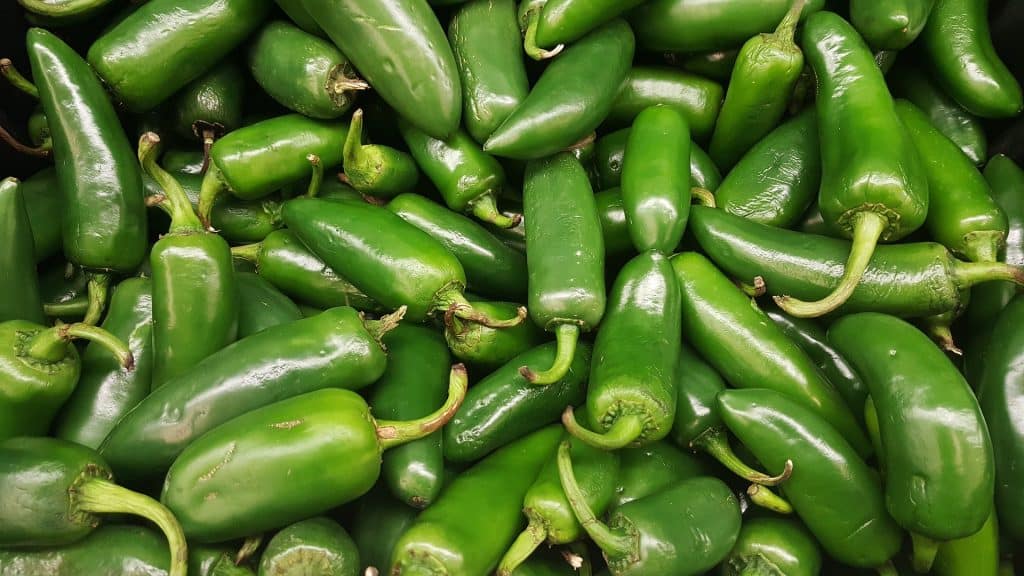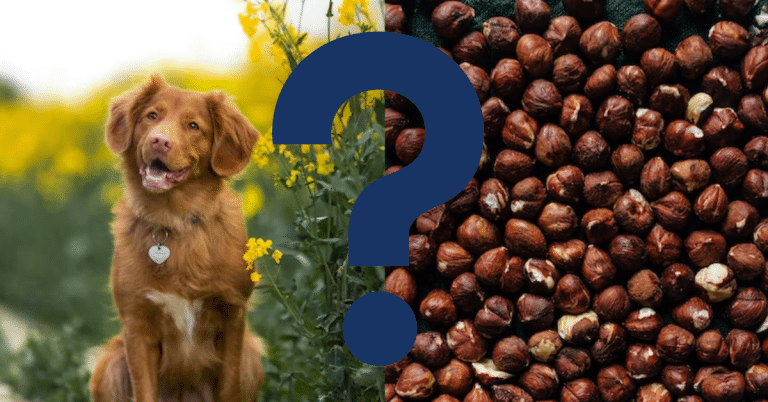Can Dogs Eat Jalapenos? A Vet’s Opinion

Jalapenos are a type of chilli pepper frequently used in Mexican food and are distinguished by their moderate spice level, but can you feed jalapenos to your dog?
Jalapenos can upset a dog’s stomach and cause discomfort. Hence it is not advised to offer them to dogs. Capsaicin, an ingredient in jalapenos, can aggravate a dog’s digestive tract and result in symptoms like vomiting, diarrhoea, and abdominal pain. Additionally, dogs who eat spicy meals may have increased thirst and dehydration. Even though a bit of jalapeno may not be dangerous, it is advisable to steer clear of giving them to dogs entirely and only give them treats and healthy foods. If your dog unintentionally eats some jalapenos, keep an eye on them and call your vet if they exhibit any symptoms of illness.
Benefits Of Jalapenos For Dogs
Jalapenos are not advised for dogs, even if they can have some health benefits for people. Although jalapenos contain some vitamins and antioxidants, these advantages do not justify the possible hazards of giving dogs spicy foods. Jalapenos have a lot of capsaicin, which is what makes them spicy. Dogs who consume capsaicin may experience digestive issues and discomfort, such as vomiting, diarrhoea, and abdominal pain. Spicy meals can also cause dogs to become more thirsty and dehydrated, which can be harmful in hot weather.
Despite some people’s beliefs, no scientific proof supports claims that capsaicin can help dogs’ digestion or reduce inflammation. Capsaicin can irritate the lining of a dog’s stomach and intestines, perhaps worsening any gastrointestinal problems already present. Overall, giving dogs jalapenos or other hot foods is not advised. While they might be a pleasant treat for humans, they can be uncomfortable and unhealthy for our canine friends. It’s recommended to stay with dog-safe foods and treats tailored to meet their dietary requirements. Consult a veterinarian for tailored guidance if you have any questions about the food or health of your dog.

How To Safely Give Jalapenos To Dogs
Jalapenos and other spicy foods shouldn’t usually be given to dogs since they can upset their stomachs. However, there are a few things to remember to reduce the hazards if you feed your dog a bit of jalapeno. It’s crucial to remember that not every dog will react to jalapenos the same way. Some dogs might be more sensitive to heat than others, and some might have underlying medical issues that worsen capsaicin.
- Consult your veterinarian to be sure giving your dog jalapenos is safe if you’re thinking about doing so. If your vet gives you the all-clear to feed your dog jalapenos, there are a few safety measures you should observe.
- Start by offering your dog a modest quantity of jalapeno, like a dusting of chopped peppers or a tiny piece.
- If your dog exhibits any symptoms of digestive distress, such as vomiting or diarrhoea, keep a close eye on him and stop giving him jalapenos immediately.
- It’s also crucial to think about how you administer jalapenos to your dog. For instance, adding a tiny amount of dried jalapeno powder to your dog’s food may be less likely to upset their stomach than giving them a slice of fresh jalapeno.
- Even dried jalapeno can be too hot for some dogs, so it’s better to start with a tiny quantity and go up if your dog tolerates it well.
- Overall, it’s crucial to remember that there are many other nutritious and secure treats you may give your dog instead of jalapenos. If you feed your dog jalapenos, do it sparingly and with a veterinarian’s advice.
Will Jalapenos Make A Dog Sick?
A dog might become ill from jalapenos. Capsaicin, the chemical that gives chilli peppers like jalapenos their heat, is found in them. Dogs who consume capsaicin may experience digestive issues and discomfort, such as vomiting, diarrhoea, and abdominal pain. Additionally, dogs who eat spicy meals may have increased thirst and dehydration.
Offering dogs jalapenos or other spicy foods is typically not advised, though a tiny amount may not necessarily make them ill. There is a chance of stomach distress or other negative responses in some dogs, who may be more sensitive to spicy meals than others. It’s crucial to call your veterinarian for guidance if you suspect that your dog ate jalapenos or other spicy foods and they are causing symptoms like vomiting or diarrhoea. Depending on the severity of the symptoms, they could advise keeping an eye on your dog at home or bringing them in for a checkup.
Can dogs eat jalapeno variations?
.
Any form of jalapeno variation, including pickled, smoked, or dried jalapenos, is generally discouraged for feeding dogs. Capsaicin, the chemical that gives chilli peppers like jalapenos their heat, is found in them. Dogs who consume capsaicin may experience digestive issues and discomfort, such as vomiting, diarrhoea, and abdominal pain. Additionally, dogs who eat spicy meals may have increased thirst and dehydration.
Even though some people might think pickling, smoking, or drying jalapenos can lessen their heat, these techniques may not eliminate capsaicin—dogs who consume even small doses of capsaicin risk experiencing digestive issues or other health issues.
Various dog-specific snacks are designed to satisfy their nutritional demands if you’re seeking safe, healthful treats to give your dog. In addition, various vegetables and fruits, such as carrots or green beans, can be used as healthy and secure dog treats. It’s always better to speak with your veterinarian for specific guidance if you have concerns about which foods are safe for your dog.

Vet’s Summary
Because jalapenos contain capsaicin, a chemical that can upset a dog’s stomach, they should not be given to dogs. Jalapenos may have some health advantages for people, but these advantages are not significant enough to justify the dangers of giving hot foods to dogs. Furthermore, capsaicin can aggravate a dog’s stomach and gut lining, perhaps exacerbating pre-existing digestive problems. It’s recommended to stay with dog-safe foods and treats tailored to meet their dietary requirements.
Probiotic supplements may benefit your dog’s diet if they have digestive troubles or other health problems. The gut microbiome can be balanced with probiotics, enhancing digestion and general health. Powders, chews, and capsules are just a few of the available probiotic supplement delivery methods. It’s crucial to choose a high-quality probiotic supplement for your dog that has been created especially for canines and has a variety of bacterial strains. Always seek advice from your veterinarian before including any dietary supplements or drugs in your dog’s regimen.
Videos To Watch
If you are wondering if you can give your dog jalapenos, watch this:
And if you want to know what a dog can NOT eat, watch this:






